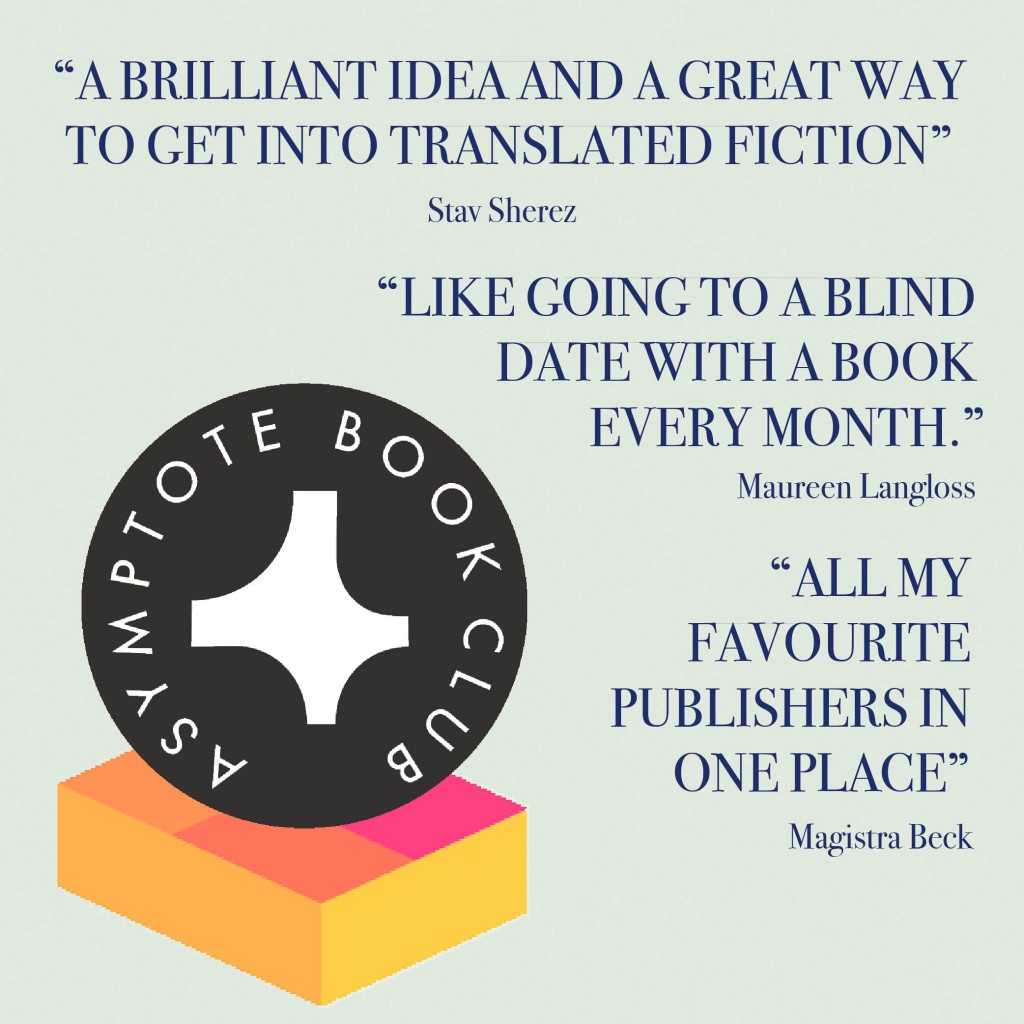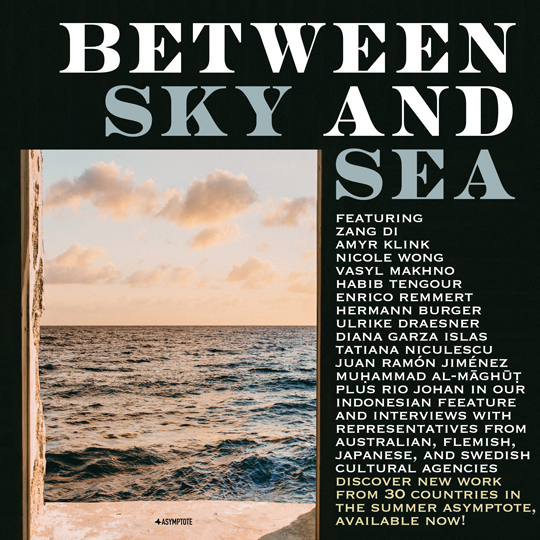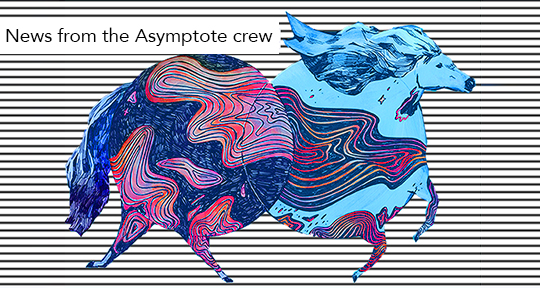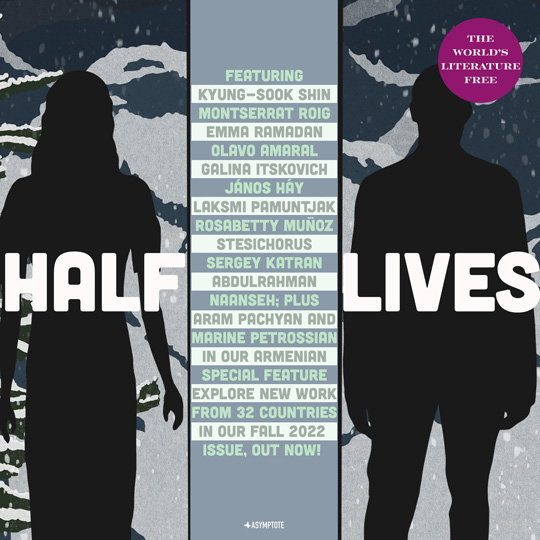
Posts by Lee Yew Leong
You’re Invited: Join our 2024 Reading Challenge!

Is reading adventurously one of your New Year’s resolutions? We can help with that!
Upcoming Opportunities in Translation

For our final post of the year, we decided to compile a list of opportunities for all you translators out there to apply to. Onward and upward!
Opportunities abound for the emerging translator! Just in time for the year-end break—this will be our final post of the year—we sifted through the latest ones and compiled the best and timeliest for our new one-stop hub, “Upcoming Opportunities in Translation.” See you on the other side of the New Year!
AWARDS
SARAH MAGUIRE PRIZE
The 2024 Sarah Maguire Prize for Poetry in Translation is now open for submissions. This international prize is awarded every two years to a translated book of poetry by a “poet living beyond Europe”. The winners will receive £3000, to be divided between the poet and their translator, and will be included in a Poetry Book Society promotion alongside up to seven other shortlisted titles. Past winners include Palestinian poet Najwan Darwish and Chinese poet Yang Lian.
Founded in 2020, the Prize commemorates the Poetry Translation Center’s founder, renowned poet Sarah Maguire, and seeks to celebrate the art of poetry in translation, which the PTC calls “the lifeblood of poetry”. Applications close on Monday, January 1st, 2024.
WORLD LITERATURE TODAY – STUDENT TRANSLATION PRIZE
World Literature Today offers an annual competition for students enrolled in translation studies programs worldwide, and applications are open! Consistent with WLT’s commitment to serving international and university communities alike, the Student Translation Prize seeks to recognize the work of emerging translators from anywhere in the world.
Entries should include a piece of translated prose (up to 1,000 words) or three pieces of poetry, along with a cover letter. $200 will be awarded to one prose translation and one poetry translation. Both will also be published online in the summer.
Applications are due January 11th, 2024.
MO HABIB TRANSLATION PRIZE IN PERSIAN LITERATURE
The Department of Middle Eastern Languages and Cultures at UW is thrilled to announce that the Mo Habib Translation Prize in Persian Literature is open for submissions for its second cycle. In partnership with the Mo Habib Memorial Foundation and Deep Vellum Publishing, this prize aims to commemorate the life of Mohammed Habib through the celebration of Persian literary works.
This cycle will focus on Persian poetry from the 10th century CE to the present day. Bi- or multilingual projects are more than welcome, as are collections of poems from more than one author. Applicants should submit a cover letter, a CV, and a sample of the proposed translation by March 1st, 2024. The winning translation will be awarded $10,000 and will be published by Deep Vellum.
The Best Gift This Holiday Season

Who doesn’t love a year of adventurous reads—chosen from the latest in translation and delivered directly to their door?
What’s New with the Crew? (Aug 2023)

Find out what our staff members have been up to when we’re not editing your favorite literary journal!
Editor-at-Large for Palestine Carol Khoury will be the guest editor of a special issue of the Jerusalem Quarterly, titled “Write-Minded: Jerusalem in Literature”; check out her call for submissions here or email her for further details.
Newsletter Editor Cody Siler published an essay in the Los Angeles Review of Books about the impact of the American suspense writer Patricia Highsmith’s diaries on her critical reputation.
Chris Tanasescu aka MARGENTO, Editor-at-Large for Romania & Moldova, chaired in June the 5th edition of #GraphPoem at Digital Humanities Summer Institute, a “data commoning” hyper-platform performance involving hundreds of participants and watched by thousands of viewers online.
Nonfiction Editor Ian Ross Singleton translated four poems by Marina Eskina for Barzakh.
M.L. Martin has a new translation of the pre-10 c. Anglo-Saxon queer, feminist poet in the latest issue of Cordite.
Assistant Editor Megan Sungyoon‘s translation of The Cheapest France in Town by Korean poet Seo Jung Hak is scheduled to be published by World Poetry Books in October 2023.
Blog Editor Meghan Racklin’s essay on sore throats as illness and as metaphor was published in Full Stop and her review of The Light Room by Kate Zambreno was featured in The Brooklyn Rail.
Assistant Editor (Fiction) Michelle Chan Schmidt published a review of Owlish by Dorothy Tse, translated from the Chinese by Natascha Bruce, in Cha: An Asian Literary Journal.
Editor-at-Large for North Macedonia Sofija Popovska‘s Macedonian translation of the novella Im Kopf von Bruno Schulz by Maxim Biller was published in July by Makedonika Litera Press; additionally, “Thaumatropes”, a poetry collection she co-authored with Jonah Howell also appeared in July, published by Newcomer Press.
Copy Editor Urooj recently had two poems published in Gulmohur Quarterly‘s Issue 10, released in June 2023. They were also invited to share their poems at the Bangalore Poetry Festival, in Bangalore, India as one of four young, emerging poets in a panel called “Poems in Progress.”
*****
Interested in joining us behind the scenes? We’re still finalizing our mid-year recruitment drive—hurry and apply if you’d like to help power the world’s literature!
The Summer 2023 Issue Is Here!
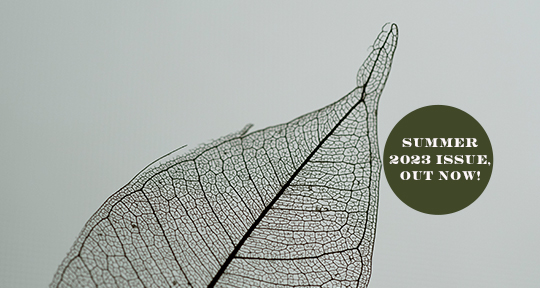
Featuring Amyr Klink, Enrico Remmert, Diana Garzas Islas, and Rio Johan in our Indonesian Special Feature
Wedged between sky and sea is the thin line we all know as the horizon, ever-present in Brazilian explorer Amyr Klink’s nail-biting account of survival in shark-infested waters—just one of many new works from this Rubik’s Cube-like Summer edition. Though this particular horizon is “defined” against a clear sky on the day of Klink’s wondrous salvation, the same line is also “dun-colored” in Ecuadorian author Solange Rodríguez Pappe’s profound fiction; “lacerated” in frequent contributor Habib Tengour’s Homer-inspired sequences; mottled with “dung heaps” in Nobel laureate Juan Ramón Jiménez’s poetry; or simply a vortex toward which the ocean ebbs in award-winning short story writer Nukila Amal’s description of the aftermath of the 2004 tsunami. Within the same Indonesian Feature, organized in partnership with the Lontar Foundation, Rio Johan’s brilliantly inventive “Fruit Maps”—about a drunk bioengineer!—finds a thoughtful echo in Nicole Wong’s Brave New World Literature entry invoking terroir and fruit to further problematize the mediating role of translation in world literature beyond mere tropes of “domestication” or “foreignization.” In Romanian playwright Tatiana Niculescu’s laugh-out-loud drama, on the other hand, it’s one particular foreigner with a very specific request who gives a museum guide grief; the museum is also the setting for Chapman Caddell’s thrilling review of Argentinian novelist César Aira’s latest “flight-forward” creation. All of this is illustrated by Singapore-based guest artist Eunice Oh, whose stunning photography graces our cover.
Since the ongoing support of cultural institutions—or, in Asymptote’s case, lack thereof—makes a huge difference in what translator David Williams has wryly compared to the Olympics for being essentially a pay-for-play arena, we return to an interview series initiated two years ago and hear from four more fearless advocates who “work more backstage than onstage” to catalyze the transmission of their national literatures: Susanne Bergström Larsson from the Swedish Arts Council, Wenona Byrne from Creative Australia, Marieke Roels from Flanders Literature, and Shun Inoue from the Japan Foundation, the last sharing the same enthusiasm for manga as our Visual section’s Alexa Frank. “Because literature is such a powerful medium with which to explore the human condition and connect with one another,” Inoue says, “we must continue to look outward, not inward.” Hear, hear.
While we take some time off our issues to regroup and plan for a double milestone in January 2024 (the edition after this will mark both our 50th issue and 13th anniversary!), we hope you’ll join us in looking outward: apart from subscribing to our newsletter and international Book Club, following us in our daily blog, on Facebook, Twitter, our two Instagram feeds, and our newly launched Threads account, we invite you to come on board behind the scenes (apply by Aug 1st) or submit your own translations—who knows? you might share the same fate as contributor Anton Hur, double 2022 International Booker Prize longlistee and, as of eleven days ago, translator of BTS! Finally, if the work we do has similarly changed your life for the better, please consider advertising on our platforms, partnering with us on a Special Feature, or signing up as a sustaining or masthead member.
A toast to horizons in all their myriad forms—especially those that broaden perpetually!
Our Spring 2023 Edition Is Here!

Featuring Fernando Pessoa, Franca Mancinelli, Wu Ming-Yi, and Yolanda González in our animal-themed special feature
Experience the world anew through non-human eyes in “Vivarium,” our Spring 2023 issue! From macaques to marmots, muntjacs to mosshoppers and microscopic prokaryotes, a superabundance of literary life overflows from 30 different countries. In this thriving biosphere, you’ll find work from Estonia and Oman flowering in the same soil as Alaa Abu Asad’s Wild Plants and our first entry from Bolivia via Pulitzer Prizewinner Forrest Gander. The same Pangaean ecosystem sustains our animal-themed special feature headlined by Yolanda González, recipient of the 2001 Premio Café Gijón Prize, and 2018 Booker International longlistee Wu Ming-Yi. Alongside these, there are the always thought-provoking words of Italian poet Franca Mancinelli, which bloom in both the Interview and Poetry section—the latter also shelters Fernando Pessoa, whose brilliant co-translators Margaret Jull Costa and Patricio Ferrari have rendered him in one of his most mordant heteronyms, Álvaro de Campos.
The Winter 2023 Edition Has Landed

Helping us celebrate our milestone 12th anniversary issue are César Aira, Geetanjali Shree, Alfred Döblin, and Choi Jeongrye in our Korean Feature!
Earthquake, war, disease, unrequited love, even a man-made hell conjured through scents—what haven’t the protagonists in our Winter 2023 edition been through? Tagged #TheReturn, this issue is not only a celebration of human resilience but also of our twelve years in world literature. Helping us mark this milestone are César Aira, one of the most beloved names in the canon, and Geetanjali Shree, 2022 International Booker Prizewinner—both give us exclusive wide-ranging interviews. Amid new work from 34 countries, we also have stunning short stories from Alfred Döblin and Dalih Sembiring, powerful drama by Anna Gmeyner, a brilliant review of past contributor Johannes Göransson’s latest publication, and a Special Feature sampling the best in contemporary letters from a world literature hotspot sponsored by LTI Korea. All of this is illustrated by our talented guest artist Weims.
In Emmelie Prophète’s slow-burning fiction, “The Return” is a dramatic answering of prayers when a former Olympic athlete turns up unannounced before his mother a lifetime after his escape from Port-au-Prince. That same longed-for return is impossible for poet Fadi Azzam—“a Syrian / who had to flee his homeland / to countries that wish to flee from him.” In Juana Peñate Montejo’s poems of exile—our first work from the Mayan language of Ch’ol—on the other hand, it’s the self that requires summoning and remembering: “Bring the scent of amber, / return me to myself.” Re-membering, in the most literal sense, is foregrounded in Kim Cho Yeop’s macabre but fascinating story, one work in a sci-fi-tinged Korean Feature of startling breadth, wherein we are initiated into a community of amputees-by-choice, since “the body is hardly capacious enough to contain the human soul, which is so full of potential.” So full of potential, perhaps, that even a lover’s reincarnation on the 49th day of his death in the womb of a stranger seems possible in a transcendent story by the Mongolian writer Bayasgalan Batsuuri.
“Six months before his death in 1991, Menke Katz had a dream. In it, his long-dead mother admonished him to return to writing in his native language, Yiddish.” This dream resulted in the Oulipian poems that Jacob Romm has beautifully translated for this issue. Proving an exception to Shree’s claim that “the creative writer is instinctively drawn to her mother tongue,” Mohammed Khaïr-Eddine describes an opposite impulse in his essay: writing in French—a second language—is his deliberate choice, and he wouldn’t have it any other way. Anyway, isn’t the true writer one who is “always a stranger in the language he expresses himself in”? In any case, even if the process of writing is estranging, the outcome when a piece of writing finds its intended reader can be sublime. For Lynn Xu, “the act of reading is the act of making kin . . . For example, when I read [César] Vallejo, I recognize that he is my mother . . .” By utter coincidence or divine fate, César Vallejo is also featured in these very pages, translated by another César, the intrepid César Jumpa Sánchez, who is determined to project Vallejo’s breakthrough collection, Trilce, to, in his own words, “a network of planetary outreach.”
Just as “encyclopedism has been the permanent horizon of [César Aira’s] work,“ the asymptotic impulse to realize a world literature that truly reflects the world has been our north star from the get-go. If our very existence has connected you with your kindred authors, help us get to our big 5 0 (in issues, not years!), just around the corner. The best way to support us is to sign up as a sustaining or masthead member—the New Year brings new perks and we’ll even put together a care package (rabbit theme optional) for supporters at the USD500-a-year tier and above. Thank you for being with us all these years!
Announcing an Animal-themed Special Feature
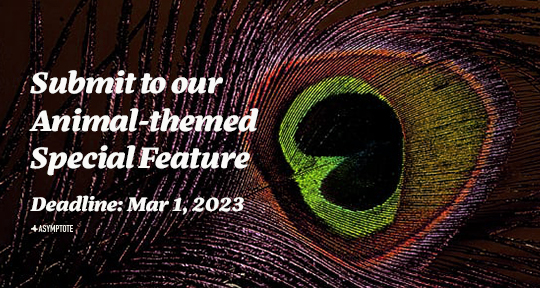
“There is a different way of knowing here and I see all around me a constellation of animals.” —Linda Hogan
For our Spring 2023 Special Feature, we will be putting together an animal-themed feature that looks at wildlife in a new light. We seek fictional and nonfictional narratives that place such animals at the center, whether in natural or urban environments (the animal or animals in question must play a central role in the story’s plot; we also welcome stories where the narrator is an animal).
Of special interest are texts that illuminate what Linda Hogan has called a “different way of knowing” or imagine the coexistence of the animal in question with human beings. Hrant Matevossian’s “The Green Field” from the current issue, or Zsófia Bán’s “On the Eve of No Return” from the Summer 2014 edition are excellent examples of the kind of work we are looking for. The Feature is intended to be a showcase of the many nonhuman existences who share this planet with us.
For once, we’ll be accepting original English-language submissions (although translations will still be prioritized in our curation). Fees will be waived for the first submission to this Special Feature; in addition, contributors whose work is accepted will receive an honorarium of USD100 per article. Check out our full guidelines and send in your best work today!
Are you game for our New Year reading challenge?
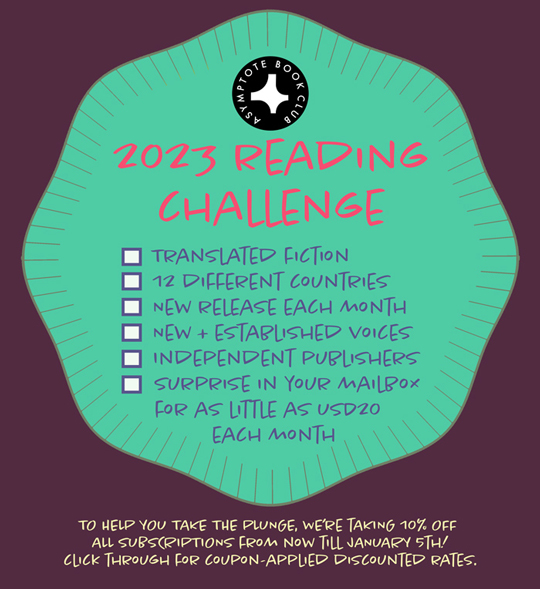
Discover the latest and greatest of world literature, curated by our award-winning team!
This New Year, pledge to read diversely by joining the only Book Club that partners with indie publishers on both sides of the Atlantic! To help you take the plunge, we’re taking 10% off all Book Club subscriptions from now till 2359hrs, January 5th. A steeper discount is available for group subscriptions—inquire via bookclub@asymptotejournal.com.
Dear reader,
Time flies. It’s almost the year-end. How was 2022 for you?
Amid new work from a staggering 75 countries across four quarterly issues, we were very proud to have shone a spotlight on Ukrainian voices this year, voices like Zenia Tompkins, Andrii Krasnyashchikh, Yaryna Chornohuz, Galina Itskovich and Sergey Katran (outraged by what we saw on the news, we also announced a #
But this year was also marked by great uncertainty. For one, inflation everywhere meant that some team members were no longer able to continue in their roles—this meant that many of us took on extra work to maintain our quality and output; we didn’t want to let our readers down.
We also had to brace ourselves for cancellations in Book Club membership when we announced our first increase in subscription fee after five years, no longer able to absorb the increases in costs (of postage, and of the titles) ourselves. And, on a more personal front—as contributors to the postponed Summer edition knew—I came down with COVID this July, with symptoms that have lingered till now. Though my health is in a better place today than, say, one month ago, nothing is assured about our future: We still don’t qualify for the generous funding that many like organizations from the US or the UK receive.
So, on #GivingTuesday, I have to ask on behalf of my entire team: If our work this past year has meant anything to you, will you take just three minutes and pledge five dollars a month to our mission?
Because we can do even more for world literature with your help. Even better, sign up as a patron or masthead member. To show our gratitude, I’ll even personally put together a care package for you.
Around the corner, our big 5-0 (in issues, not years!) looms. Help us stick around until then. Our 50th edition will be all the more magnificent for it.
Gratefully,
Lee Yew Leong, editor-in-chief
Announcing Our Black Friday Sale!
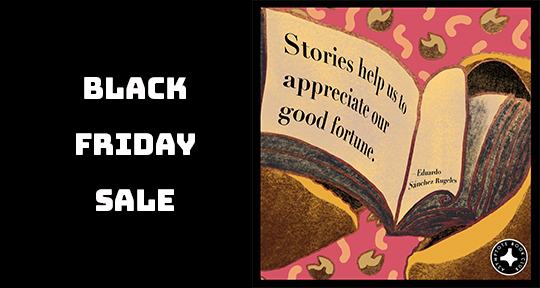
Calling all world lit lovers, here’s the #BlackFriday sale you’ve been waiting for!
For three days only, we’re taking 10% off Book Club subscriptions (including the one-year membership). Click here for our special coupon applied pricing and remember: A book club subscription also makes the perfect gift for the reader in your life. Offer expires after 2359 hrs, this Sunday, so hurry!
The Fall 2022 Issue Is Here!
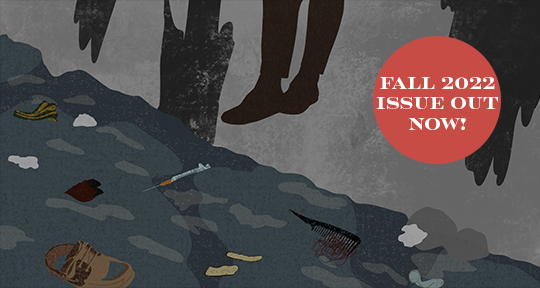
Featuring Kyung-Sook Shin, Emma Ramadan, Aram Pachyan, and Álvaro Fausto Taruma amid new work from 32 countries and 19 languages
Welcome to “Half-Lives,” our new Fall 2022 issue, where never-before-published work from 32 countries and 19 languages confront life as it shouldn’t be: stunted, degraded, perversely foreshortened—in short, half-lived. Its centerpiece is the Armenian Special Feature, generously sponsored by the Calouste Gulbenkian Foundation, under the aegis of which we are proud to present stunning new translations of emerging authors such as Aram Pachyan, last year’s winner of the EU Prize for Literature—Armenia’s first recipient!—alongside more established voices like Narine Abgaryan, Krikor Beledian, and Hrant Matevossian. Inescapably harrowing because of their historical contexts, many of these works set the tone for the rest of the issue—including a gritty dispatch from Ukraine via Galina Itskovich and a spotlight on Ukraine-born artist Sergey Katran. Elsewhere, Claire Mullen chats to Emma Ramadan about the joy of translating from the archive, past contributor Anton Hur brings us a new short story by 2012 Man Asia Literary Prize recipient Kyung-Sook Shin, and Grant Schutzman delivers our first work from Mozambique in the form of moving poetry by Álvaro Fausto Taruma. All of this is illustrated by our amazingly talented guest artist, the London-born creative Louise Bassou.
On the heels of Roe being overturned, our editors have also responded by centering one half of the human condition in this issue. Pregnancy is the subject of Lusine Kharatyan’s keenly observed #America_place Pregnant and S. Vijayalakshmi’s intimately recounted Just Like a Womb. Growing up (a “difficult art” according to a very wise Montserrat Roig in this issue’s inspiring Brave New World Literature Feature), the women in these pieces are made to feel less than human in contradictory ways, shamed for the developing bodies in which they are trapped (Rosabetty Muñoz) while becoming objects of unwanted desire at the same time (Eszter T. Molnár). In Mexico, Karen Villeda reminds us that the consequences of being a woman can be fatal, writing that women are not alive, but only “still alive” until they are not. How do women counteract the stunting forces of a hostile world? From the ventriloquism of an Abuela who talks to herself to ensure that no one else speaks for her in Alejandra Eme Vázquez’s You’ll Leave Your Body Behind to the adoption of a third language by Jhumpa Lahiri to develop her own linguaggio, as revealed in Translating Myself and Others reviewed by Caterina Domeneghini, giving voice to female experience, as we endeavor to do in this issue, is one shared mode of resistance.
No matter your taste, there’s something for everyone in this edition, so circulate this glorious new issue by printing our Fall 2022 flyer (downloadable here); like and share our issue announcement and article plugs on Facebook, Instagram, and Twitter.
To read the world and read it more fully is itself a recipe for a fuller existence. If we’ve made a difference in that regard to your lives, please consider celebrating our full twelve years of publishing the best in world literature by joining us a masthead or sustaining member from as little as $5 a month—for a limited period only, we’ll even throw in a bonus 2023 digital Asymptote calendar!

